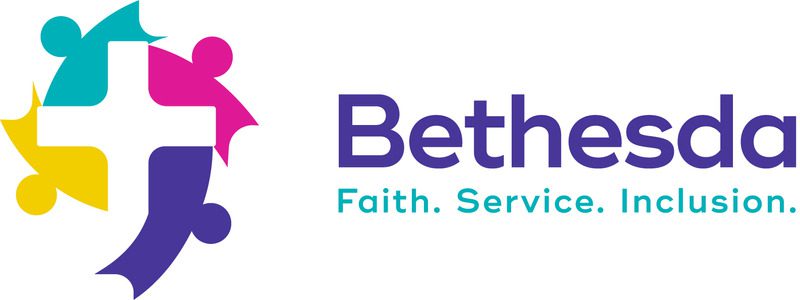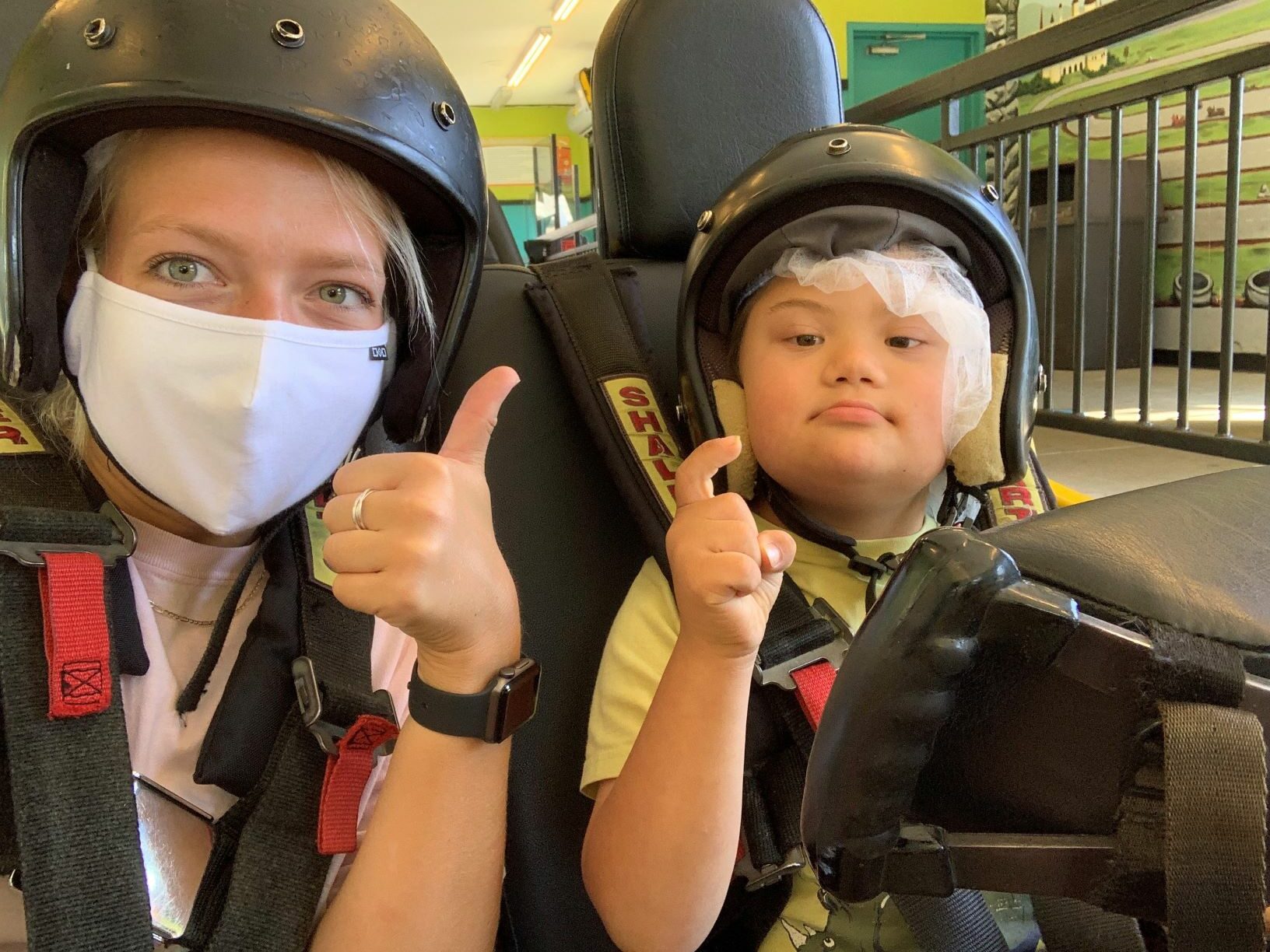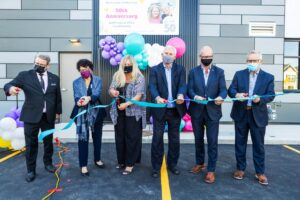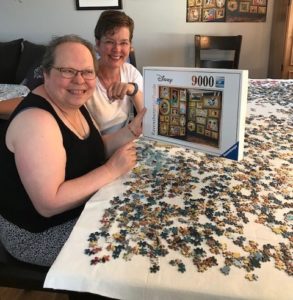Walking alongside people sharing the joys and challenges they experience has always been what we do at Bethesda. This year, supporting families with respite has taken on a new level of importance as they've struggled with the stresses of the pandemic.
As I have been working with families throughout COVID-19 pandemic, I have gained a new appreciation for parents and families of people with diverse abilities. Despite the challenges the pandemic has created, I have witnessed their unconditional love, and their ceaseless commitment to caring and raising their children and the rest of their families.
Just before the general shutdown in March, we started asking how a pandemic would impact families. What if businesses and schools were closed? If people were unable to access their usual supports, what would happen? We knew we needed to be there for families, because that’s our mission, to experience the joys and challenges of life together.
Raising a child with diverse abilities has challenges beyond the challenges of raising other kids. A child with diverse abilities requires more continuous and focused attention. For a parent, that can be draining over time because they often don’t get as much time to recharge as they need. That recharge time is what Bethesda offers and families find so valuable.
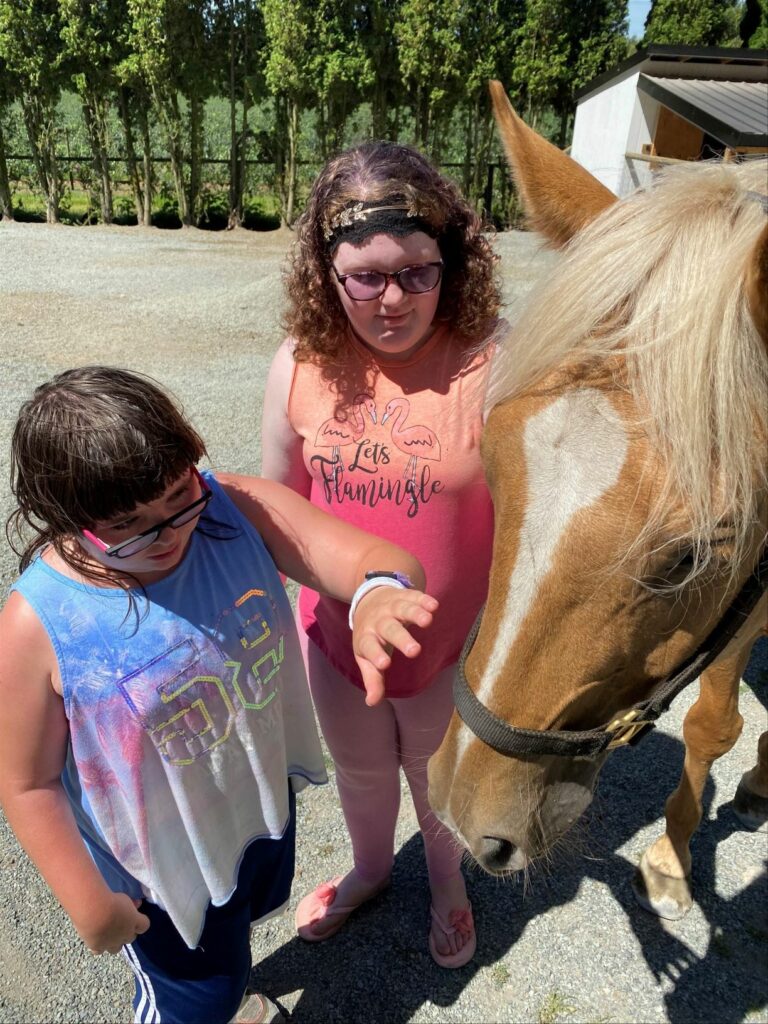
The kids who participated in summer day camp this year experience a wide range of physical, social, recreational and educational activities. Here Emily and Destiny are making friends with one of the horses at a farm they visited.
In a typical year, the respite we offer families takes place over the summer months – an 8 week day camp for youth and a 1 week overnight camp for adults. This year, with schools and daycares closed for much of the year, and many businesses closed or parents working from home, we knew we had to do something. There were families in crisis.
We scrambled to put together a plan. And finally in April, it all came together – the safety considerations, the funding from donation support, and the extra staff. By May, we started providing 4 hours twice per week of respite for 6 families. From July to the end of August, we increased it to 2-6 hour days per week for 16 families.
I knew it was stressful for parents when everything shutdown in March – they went weeks without support. I felt their tiredness as they shared their burdens in confidence. But I was unprepared for the expressions of relief when they began using the respite service in May. I had parents telling me, for the first time they had a few hours to go shopping, or catch up on housework. They weren’t using the time to spend on themselves, as much as that was needed. No, they were using it to take care of their families first
After a few weeks of receiving consistent respite, I saw parents were relaxing a little. Now I heard them talking about taking their other children out for fun activities and spending much needed time with them, or even having a little me-time or a date with their spouse. The tiredness and stress were lifting at last.
Walking alongside people sharing the joys and challenges has always been what we do at Bethesda. But I feel I’ve never seen how real the impact of that commitment is as much as I have this past year. I’m so grateful to all Bethesda supporters for their donation gifts so that we can respond to the needs of people when they need it the most. And I’m so grateful to the families for putting their trust in us during one of the scariest times we’ve all experienced.
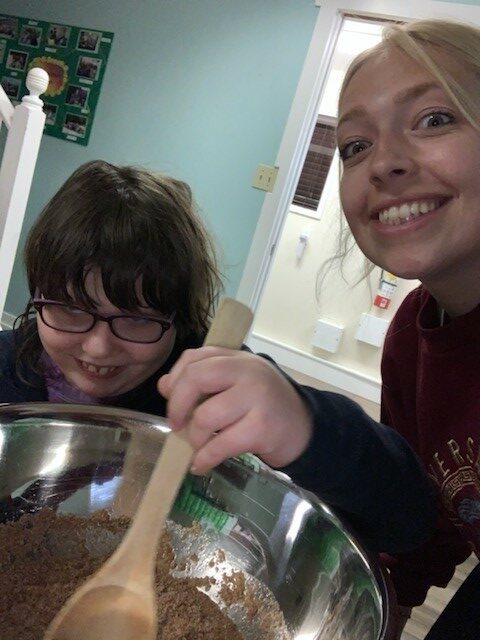
Saundra Roger is the Summer Camps and Employment Services Coordinator at Bethesda. She takes joy in seeing the people she supports thrive and helping them achieve their dreams. She also has a heart for serving people with diverse abilities in Guatemala. When at home, you can find her walking her beloved dogs, Tucker and Oliver, in Albert Dyck Park in Abbotsford.
